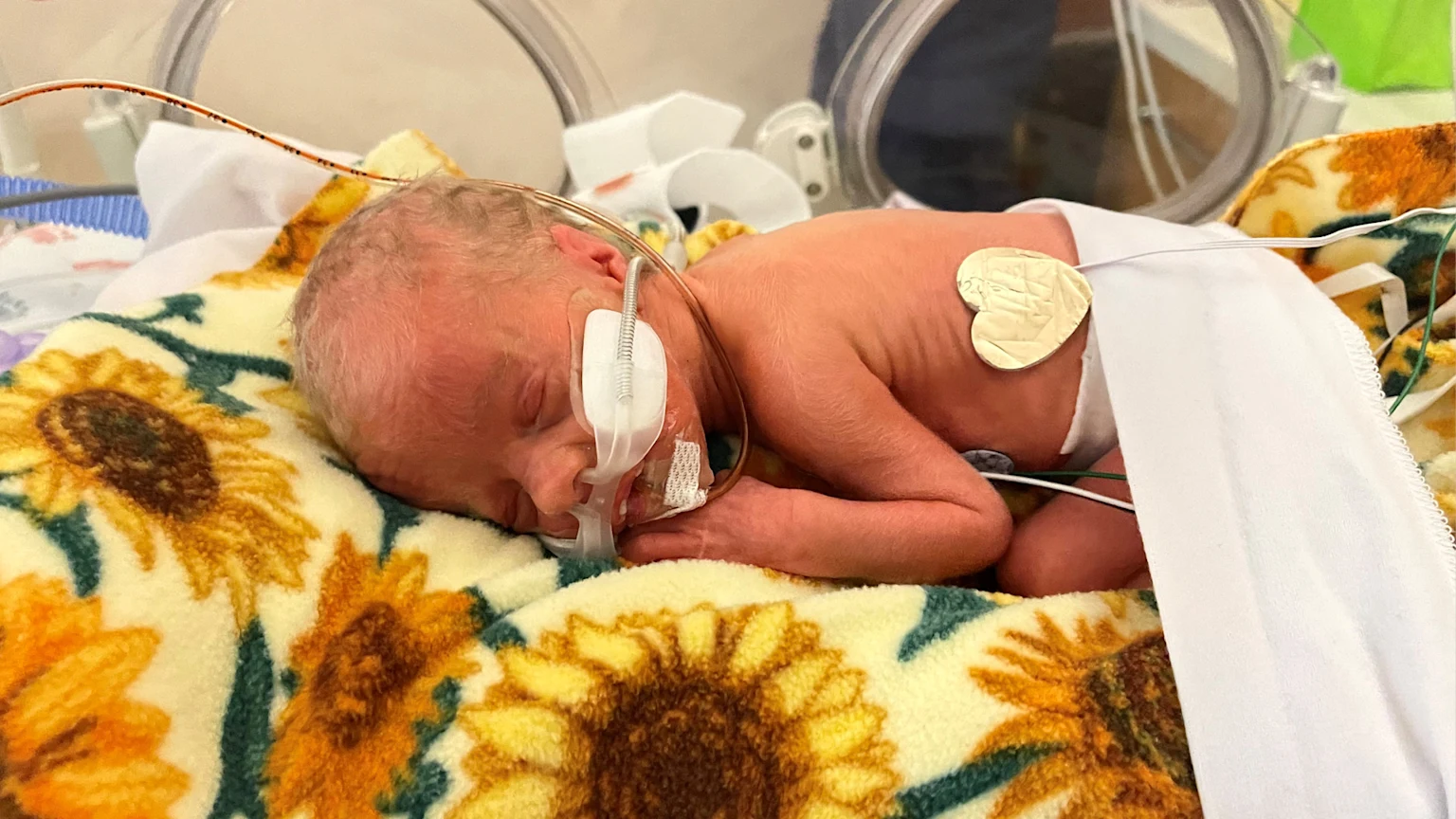
5 Medicare questions to ask before turning 65
Learn about your Medicare options, when to enroll, and how to find the plan that’s best for you.
Megan Pichette, 32, was just 27 weeks pregnant with her first child when she started to bleed. Until that point, her pregnancy was considered normal — not high-risk.
“Because of the bleeding, my doctor advised me to go to triage — the hospital unit where the health of the mom and baby are evaluated,” Megan says. “They discovered I was already 2.5 centimeters dilated during the exam, and an ultrasound showed that I had a partial placenta abruption, a potentially life-threatening condition where my placenta partially detached from the uterine wall. I was admitted to Sharp Mary Birch Hospital for Women & Newborns immediately.”
After spending a week in the Perinatal Special Care Unit, which provides in-hospital care for women with high-risk pregnancies, Megan began to experience cramps and more bleeding. Another exam showed she was 8 centimeters dilated. That evening, Megan prematurely delivered her baby girl, Shaylen, at 28 weeks and six days.
Specialized care for the smallest patients
Studies show that premature babies can have bleeding in the brain; however, giving them more blood before cutting the umbilical cord — also known as delayed cord clamping — can reduce this risk. Megan was interested in delayed cord clamping and knew about the clinical study at Sharp, so she was excited to be part of the trial in the neonatal intensive care unit (NICU).
“Even though delivering early was challenging, I was so relieved that we received our care at Sharp Mary Birch’s Level 3 NICU,” says Megan. “Everyone on our team, including the doctors, nurses, occupational therapists, physical therapists, lactation consultants and social workers were amazing! It was a true team effort.”

Baby Shaylen received round-the-clock care at Sharp Mary Birch’s Level 3 NICU.
In addition to the delayed cord clamping trial, Shaylen participated in NICU developmental rounds with Dr. Rebecca Dorner, a neonatologist affiliated with Sharp Mary Birch and director of the Nemeth NICU Follow-Up Clinic. Developmental rounds are a unique bedside program that brings families together with physical therapy, occupational therapy, bedside nursing, social work and practitioners from the follow-up clinic to focus on not only how the baby is moving, interacting and learning in the NICU but also on what development will look like after discharge. This way, rounds serve as a personalized bridge between inpatient therapies and outpatient services for each baby and family.
“These rounds aim to be very informative, and we share the progress of how far the baby has come both cognitively and physically with the families,” says Dr. Dorner. “It was special to get to work with Megan, her husband and Shaylen and to help empower them to feel comfortable once they left the hospital.”
Home to grow and develop
Now home with their family, Mom and baby are doing well. A physical therapist and infant educator come to the house weekly to help meet her developmental milestones.
Megan advises others who are going through a similar experience to ask their care team any questions they may have to ensure they fully understand everything. “Remember that you are on baby’s time," she says. “They are truly getting the best care possible at Sharp Mary Birch while they grow and develop. And don’t forget to take care of yourself!”
Learn more about the Neonatal Research Institute and clinical trials at Sharp HealthCare; get the latest health and wellness news, trends and patient stories from Sharp Health News; and subscribe to our weekly newsletter by clicking the "Sign up" link below.

Our weekly email brings you the latest health tips, recipes and stories.